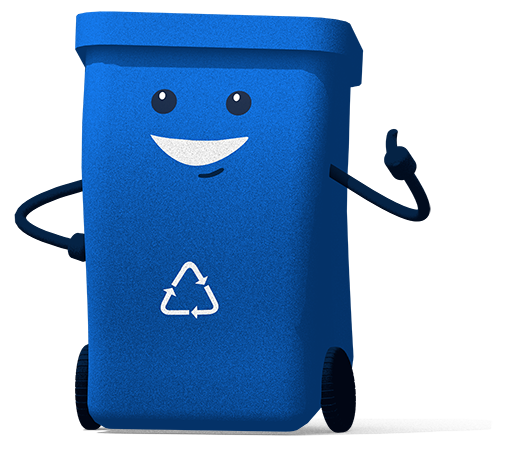
Recycling has been around a while (since the 1970s) and we all know that it is good for the environment, creates jobs, and it keeps items from sitting in our limited landfill space forever. But did you know that recycling the wrong way can be harmful to the recycling economy and potentially dangerous to recycling workers?
Recycling correctly is a critical part of conserving natural resources, creating healthier air to breathe, cleaner water to drink, and creating sustainable jobs.
Recycling:
The action or process of converting waste into reusable material.
Recycling is as easy as tossing something in the trash, except, unlike items you throw in the trash, items in your recycling bin are recovered to become something new. Recyclables have the power to become new packaging and new products. When your recycling becomes something new; US jobs are generated, greenhouse gases are reduced, and natural resources and landfill space are saved.
Recycling Right:
The action of putting empty, clean, and dry accepted materials in your curbside recycle bin, and keeping out unwanted items.
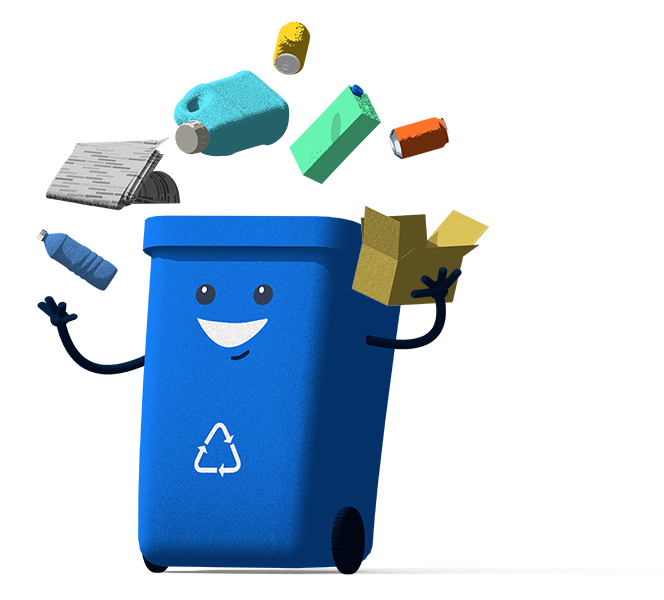
Ready for the next level? Take our Know What To Throw Level 2 Quiz: Recycling Ninja Training. Take me to Level 2!
The information provided below is intended to be a curbside recycling guide for North Central Texas.
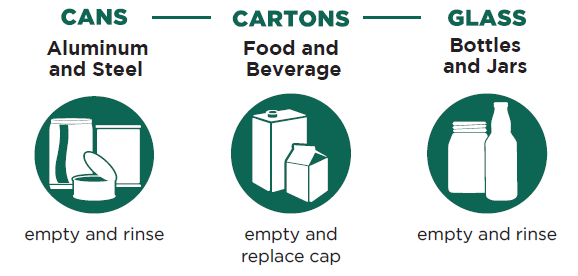
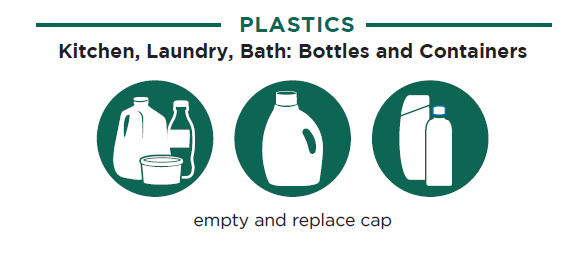
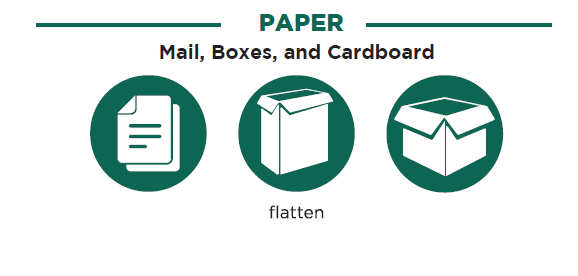
 No Bags
No BagsPlastic grocery bags are recyclable, just not in your curbside program because they get caught in the sorting equipment. Please take these back to the grocery store so they can be recycled separately.
 No Tanglers
No Tanglers"Tanglers" are items such as garden hoses, electrical cords, Christmas light strings, chains, clothing, metal hangers, or any such item that can wrap around equipment at a recycling processing facility. Just put these in the trash.
 No Food
No FoodNever put food in the recycle bin! This contaminates the other items in the bin and makes them not recyclable so they end up in a landfill anyways. This also goes for food-soiled items such as paper plates, greasy pizza boxes, or fast food containers. Just put these in the trash. Remember: Empty, Clean, and Dry for recycling. If you want to make your food waste useful, start a compost pile! More information can be found on our composting page.
 No Batteries
No BatteriesBatteries are recylable, just not in your curbside program because they cause dangerous situations for recycling workers. Batteries can spark when they come in contact with various other materials in the recycling truck or facility, which can cause fires. Too often an entire truck load of recyclables is ruined because a battery started a fire on the truck. Take your batteries to a retailer or city facility that accepts them. Check out our locator to find a place near you.
 Not Sure?
Not Sure?When in doubt, throw it out. Placing an item in the recycle bin that does not belong can be costly, dangerous, and could contaminate or ruin other recyclables. Items that are not recyclable are removed from the recycling stream and sent to the landfill anyways. If you believe an item is recyclable but it is not accepted in your curbside pickup program, you can use our locator map to find a recycling facility near you that would take that item. If you want more details and more example items of what to put in the recycle bin, what to trash, and what to recycle separately, please check out our what is recyclable page.
